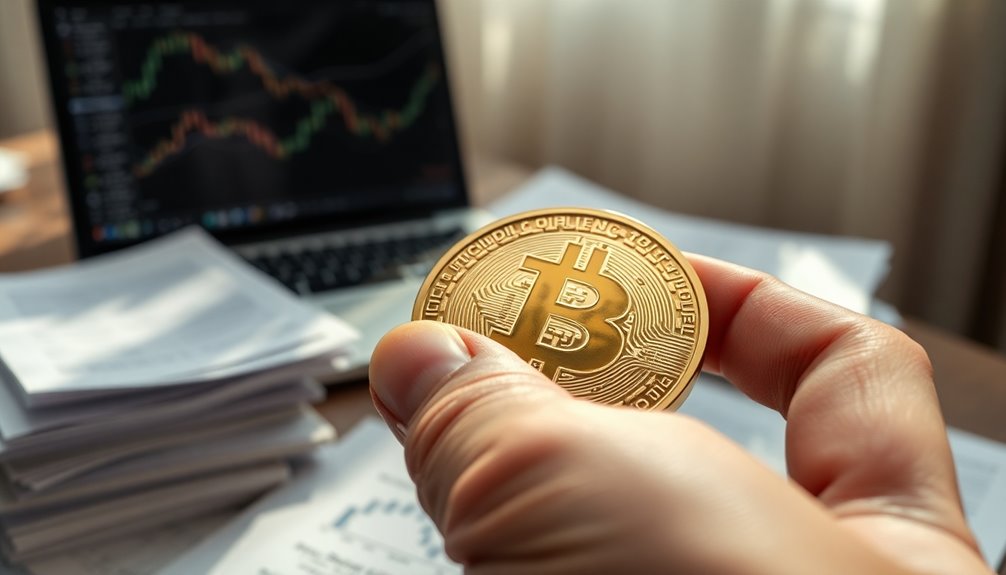Many people fear Bitcoin, often due to misconceptions about its nature and value. This Czech banker argues that such fear is misguided and highlights the importance of understanding Bitcoin's decentralized structure, transparency, and security. Instead of succumbing to anxiety, he urges investors to conduct rational research. As institutional adoption grows, the conversation around Bitcoin is evolving. So, what does this mean for your investment strategy?

Insecurity about Bitcoin often stems from misconceptions that paint it as a risky gamble rather than a revolutionary financial tool. Many people believe it's a Ponzi scheme, but that's a myth. Bitcoin operates without a central authority controlling profits, thanks to its transparent ledger system.
Insecurity about Bitcoin arises from misconceptions; it's not a Ponzi scheme but a revolutionary financial tool with a transparent ledger system.
It's crucial to understand that Bitcoin's value isn't based on traditional cash flows; instead, it derives from factors like scarcity and global adoption. This subjectivity can lead to confusion, especially when you hear about its price volatility. Sure, Bitcoin's price can swing dramatically, but that's typical for young markets which experience cycles of boom and bust.
Regulatory developments also play a role in shaping perceptions. Increasing regulations are aimed at curtailing illicit uses of Bitcoin, making it tougher for criminals to operate undetected. While some argue that Bitcoin is a haven for illegal activities, it's important to note that only a small fraction of transactions are related to crime. Law enforcement has successfully tracked criminals using on-chain activity, showing the transparency of Bitcoin transactions.
In fact, Bitcoin's increasing institutional adoption—companies like Tesla and MicroStrategy investing heavily—shows a growing acceptance as a legitimate asset.
Bitcoin's utility is another area often overlooked. It serves as a global payment system that eliminates intermediaries, making cross-border transactions simpler and cheaper. Many major investors now view Bitcoin as a hedge against inflation due to its scarcity compared to traditional currencies.
The technological innovations surrounding Bitcoin further support its potential. As an open-source project, it allows for community-driven updates that enhance its functionality and security.
When it comes to security, the Bitcoin network has never been hacked. Its decentralized architecture ensures no single point of failure, and all transactions are irreversible, providing a level of integrity that traditional banking systems can't match.
With nodes spread across over 100 countries, Bitcoin offers high uptime and resilience.
Lastly, while concerns about Bitcoin's environmental impact persist, the narrative is shifting. Although mining is energy-intensive, a significant portion of it now uses renewable sources. Research indicates that Bitcoin can be more efficient than traditional banking.









